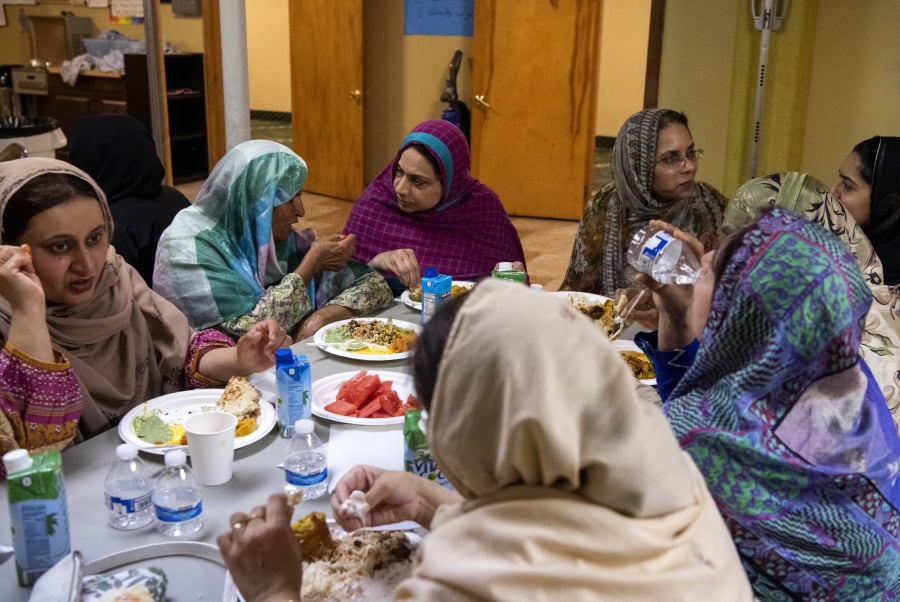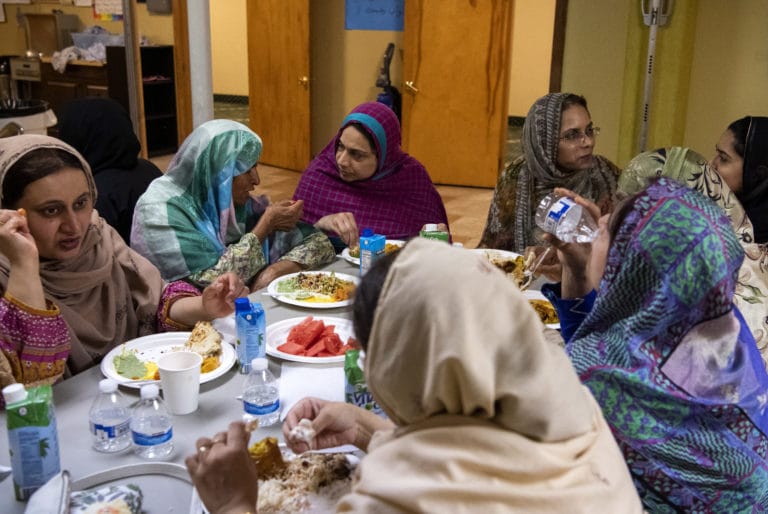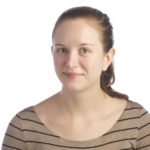Since Ramadan began last week, there’s been buzz about Portland Trail Blazers center Enes Kanter observing the holy month by fasting between dawn and dusk each day, despite being in the middle of the NBA playoffs. How can a professional athlete keep up his game while faithfully observing Ramadan?
Kanter and Muslims at the local Masjid Al Noor (Mosque of Light) in Hazel Dell have expressed the same sentiment: It’s all about discipline and dedication to their faith. Sawm, or fasting, is one of the Five Pillars of Islam.
It’s not just about abstaining from food, said Ilyas Mohammed, president of the Islamic Society of Southwest Washington. It’s about disciplining the mind.
“It gets easier. The first few days your body gets used to it,” Vancouver resident Hameeda Chandiwalla said Sunday at the mosque as she prepared for the evening prayer and iftar, the fast-breaking meal served after sunset. “It’s all your faith and your willpower.”
During Ramadan, practicing Muslims abstain from eating, drinking, smoking and sex during daylight hours. While there are other auspicious days where people can voluntarily fast, such abstentions are required during the holy month of Ramadan.
Children and those who are old, sick, pregnant or nursing are not required to fast. Mahnoor Siddiqua, 11, tried fasting for one day this year, which she said “was very hard.”
Ramadan falls on the ninth month of the Islamic calendar, signifying the month the Quran was brought down from the heavens. In addition to extra study of the holy book’s text, during Ramadan followers of Islam increase their charity and spiritual discipline.
As the sun headed toward the horizon Sunday evening, people began arriving at the Hazel Dell mosque and ate some dates to break their fast. They followed with the Maghrib prayer of five verses from the Quran and then a large meal.
Sunday’s food came from Namaste Indian Cuisine (which closed its Vancouver restaurant about a year ago but has locations in Portland). Chandiwalla, who is the wife of Ilyas Mohammed, said on the weekends when the mosque hosts an iftar, it caters food from different halal restaurants.
People also bring dishes and there’s plenty of bottled water, so people can get their day’s worth of hydration. Since it is a multicultural congregation, people will bring a variety of food. In addition to traditional Indian dishes from Namaste such as naan bread, chicken tikka masala and pakoras, there was pizza.
Getting all of the food coordinated for three nights every week is quite the feat. About 100 local families attend the Hazel Dell mosque.
Chandiwalla, who’s from Pakistan, grew up with her mother making all of the iftar food and sharing it with neighbors. In Pakistan, women pray at home. In the U.S. it’s more of a communal experience, though men and women recognize the holy month in separate prayer halls.
At the Hazel Dell mosque, the dining room next to the women’s prayer hall was crowded Sunday evening; some were chatting and eating iftar on the stairs while others stood and ate. Men ate their meal in the parking lot, under the glow of the moon and streetlights. Mohammed said the mosque “is at capacity” and there are conversations about securing a larger facility.
After the meal, there is a late night prayer that only happens for Ramadan. A hafiz, someone who has memorized the entire Quran, recites a different chapter each night.
“He’s reciting a chapter from the Quran every night,” which takes about 90 minutes, Mohammed said. “It goes till almost midnight.”
The end of the Ramadan fast is marked by Eid al-Fitr. People celebrate with food, gifts, new clothes and visiting loved ones. It’s sometimes referred to as the Muslim version of Christmas. The Islamic calendar is based on the lunar calendar, so Eid al-Fitr could be June 4 or 5, depending on when the new moon appears.





